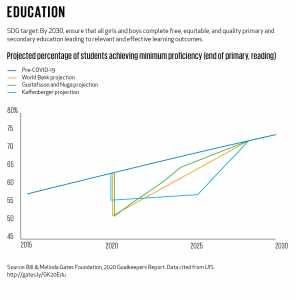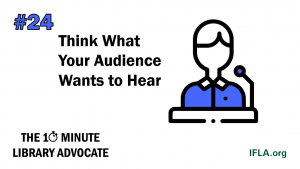Last week, a big story in many media outlets was the agreement between finance ministers of G7 countries to act to counter tax avoidance by major multinational companies. When this issue comes to the G20 later this year, it will be a truly global concern.
This blog looks a little further at the issues, why fighting tax avoidance could be part of library advocacy work, and why there is a particularly strong argument for multinational digital companies to pay their share.
Mobilising resources to pay for development
Tax avoidance is not a new issue of course. For years, there have been concerns about the ability of firms to exploit loopholes and inconsistencies between corporation tax (i.e. taxes on profits, rather than taxes on sales or turnover) rules in different jurisdictions to limit how much they need to pay.
By (nominally) locating key assets such as intellectual property in low-tax countries, or using complicated systems of loans or holding companies, highly profitable companies can make much of their fiscal liabilities disappear.
A lot of the focus has been on the practices of major internet companies, but they are not alone. Any company operating in different jurisdictions may be able to benefit, with Starbucks, care home operators, and even publishers such as Pearson being accused of this.
While, to some extent, it may be a question of political choice how much a country wants to rely on tax-funded public services or rather leave things to the market, it is undeniable that such decisions, when they affect corporate taxation, do have effects on others.
As such, it is a key part of ‘resource mobilisation’, the term used in the context of the Sustainable Development Goals to describe efforts to ensure efficient and effective taxation systems. Getting an international agreement is particularly important, given that while governments are responsible for tackling corruption or other failures to ensure that domestic actors contribute to public services and investments, they can do little once profits are ‘moved’ abroad.
The 2008 crisis intensified focus on these issues, as governments faced the question of how to pay the cost of the financial crisis. Useful work was done around tax transparency and combatting tax havens. In the wake of the pandemic, this focus seems likely only to intensify, and perhaps explains the G7 announcements themselves.
A pre-condition for sustaining library budgets
It’s not hard to imagine why this matters for libraries, at least those which rely to a greater or lesser degree on central government funding. It also matters for the achievement of many of the goals that libraries seek to support, such as education, connectivity or research.
For example, in the education sector, the Global Partnership for Education places a strong emphasis on resource mobilisation as the one sustainable way to support education funding sustainably into the future. Education International has explicitly called for stronger efforts against tax avoidance.
Similarly, the World Health Organization, back in 2018, also highlighted the importance of action on tax to support the delivery of global health goals. Organisations working on broader development, such as Oxfam, have also been strong on the topic.
Clearly, campaigning for more effective taxation is a less direct means of ensuring that libraries have adequate resources than working directly to influence how spending is structured, although it would be an area where libraries would find allies.
Moreover, the availability of funds to spend on libraries depends on funds being there in the first place, which is a tax question. In short, it becomes easier to call for stable, or increased spending on libraries when overall budgets are healthier.
Digital dividends
The argument is particularly strong in the case of libraries and digital companies, given the strong role of libraries in helping people to get online in the first place.
In the case of internet service providers, including phone companies, there are sometimes even dedicated taxes which feed into universal service and access funds. These can be (but are not always) used to help libraries provide wider connectivity.
As such, they help deliver what is increasingly recognised as the human right to connectivity, while also, arguably, helping to create new customers in the future for these same firms.
Yet digital content companies arguably benefit even more directly from when more people are brought online, along with anyone involved in eCommerce. You cannot buy things online, use social media for whatever reason, host websites, use cloud services or whatever else without being connected.
This makes it all the more relevant to argue that they should be paying their part, as much out of enlightened self-interest as because of a wider duty to support public services.
A long way to go
The welcome for the G7 announcements from organisations campaigning for effective action on tax avoidance has been lukewarm. The minimum tax rate set out has been seen as lacking ambition, and of course the deal only covers a few countries, even if they are rich.
Nonetheless, it is arguably a step in a positive direction, even if the final destination is unclear. As such, there is still plenty to do, both when the question comes to the G20, and beyond.
Clearly libraries must make choices about how to allocate time and effort around advocacy. The nature of our institutions mean that we have arguments to make across a wide range of policy fields – many more than we can feasible engage in.
Nonetheless, calling for action on tax avoidance in order to support libraries and other public services – especially those supporting connectivity, and alongside partners – is certainly worth thinking about as part of our advocacy work.
 The most obvious area where libraries can support progress is on
The most obvious area where libraries can support progress is on  Advocacy is about getting people to agree with you.
Advocacy is about getting people to agree with you.